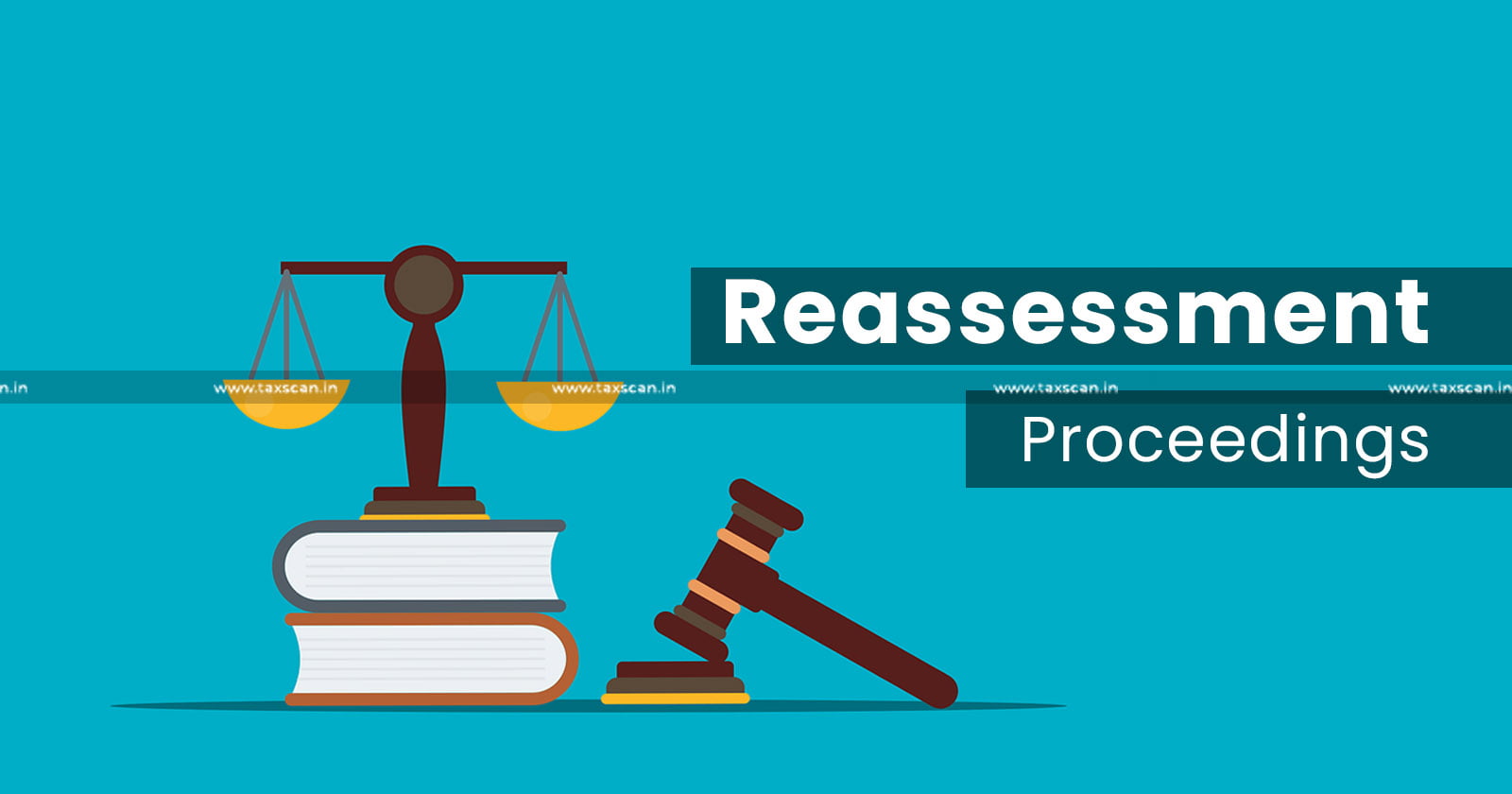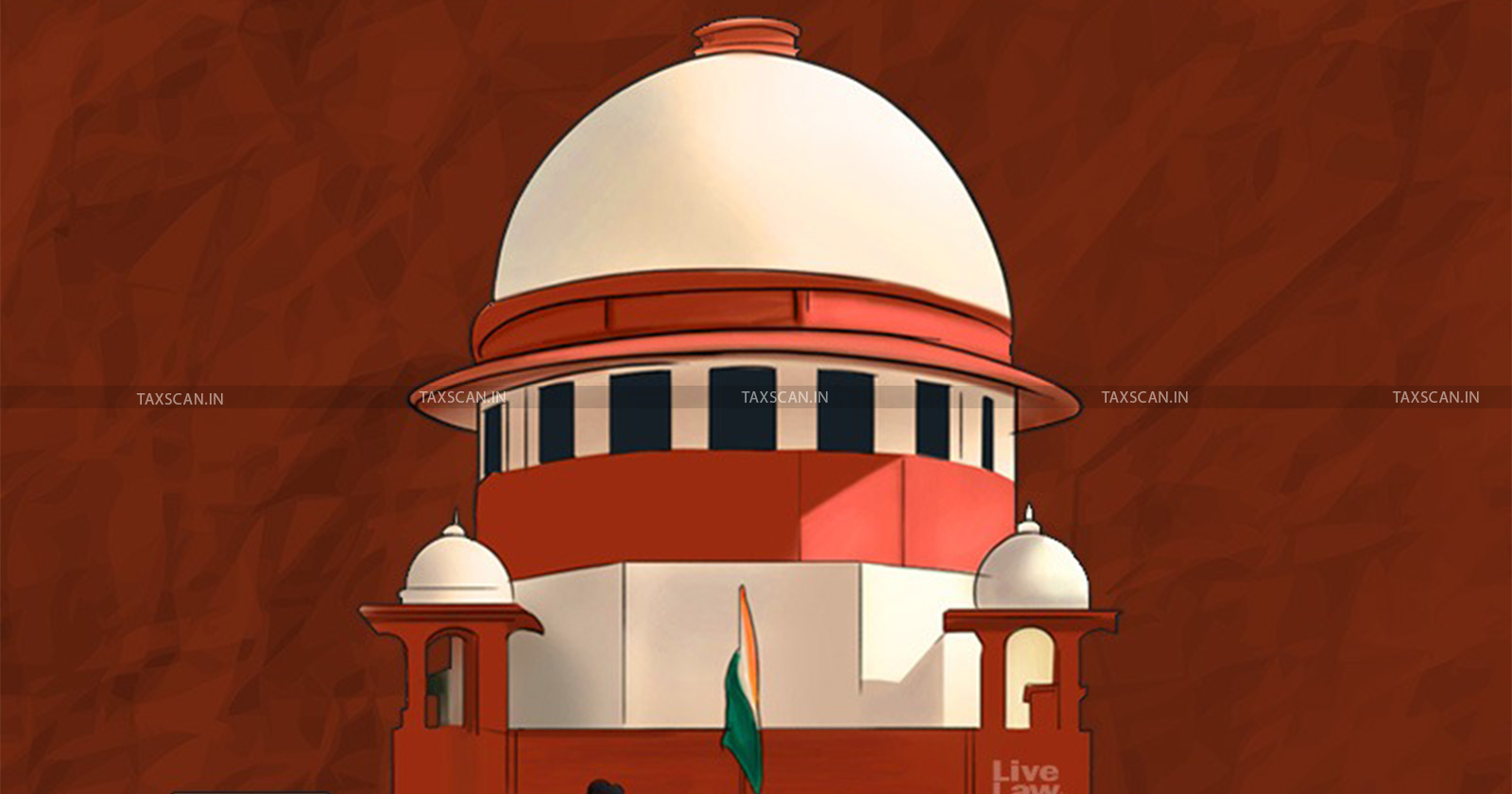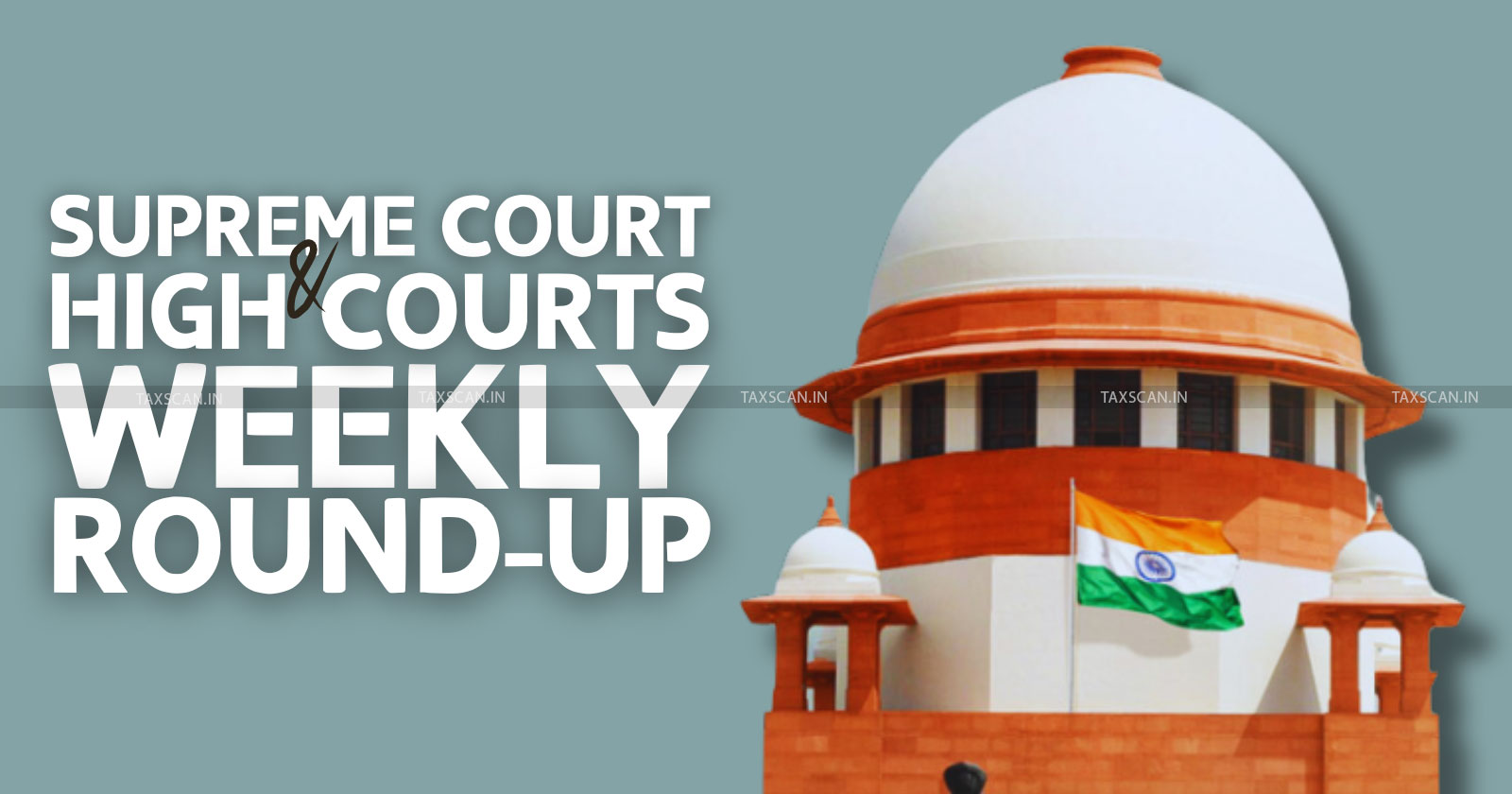Income Tax Dept. Launched Evasion Prosecution Flouting CBDT Circulars: Supreme Court Slaps ₹2 Lakh Fine on Revenue [Read Order]
The Appellant approached the Supreme Court following an unsuccessful challenge before the Madras High Court.
![Income Tax Dept. Launched Evasion Prosecution Flouting CBDT Circulars: Supreme Court Slaps ₹2 Lakh Fine on Revenue [Read Order] Income Tax Dept. Launched Evasion Prosecution Flouting CBDT Circulars: Supreme Court Slaps ₹2 Lakh Fine on Revenue [Read Order]](https://images.taxscan.in/h-upload/2025/09/01/2083061-supreme-court-fine-taxscan.webp)
The Supreme Court of India recently imposed costs of ₹2,00,000 on the Income Tax Department for launching prosecution against an accused on the basis of alleged tax evasion, in violation of binding circulars issued by the Central Board of Direct Taxes (CBDT).
The case stemmed from a search conducted at the residence of the appellant in April 2016, wherein unaccounted cash of ₹4.93 crore was seized by the authorities.. A show-cause notice was issued, following which, the Principal Director of Income Tax (Investigation), Chennai authorised the Deputy Director of Income Tax (Investigation) to initiate prosecution against the appellant.
A complaint was filed in August 2018 before the Additional Chief Metropolitan Magistrate, Egmore, Chennai, alleging that the appellant had wilfully attempted to evade tax for Assessment Year 2017-18.
Want a deeper insight into the Income Tax Bill, 2025? Click here
While the prosecution was pending, the appellant approached the Settlement Commission in December 2018, voluntarily disclosing additional income. By an order dated November 26, 2019, the Settlement Commission held that the appellant had made full and true disclosure of his financials and proceeded to grant him immunity from penalty; however, the commission abstained from granting immunity from prosecution as the criminal case had already been instituted before the magistrate.
Aggrieved, the appellant unsuccessfully challenged the matter before the Madras High Court, leading to the present appeal before the Supreme Court.
Preetesh Kapur appeared for the appellant and argued that the order by the Settlement Commission granting immunity against levy of penalty on the appellant is conclusive in terms of Section 245-I of the Income Tax Act, 1961.
 Also Read:Income Tax Reassessment Proceedings: SC Instructs AO to Dispose of Objections as per Law Laid Down in Rajeev Bansal Case [Read Order]
Also Read:Income Tax Reassessment Proceedings: SC Instructs AO to Dispose of Objections as per Law Laid Down in Rajeev Bansal Case [Read Order]
How to Audit Public Charitable Trusts under the Income Tax Act Click Here
He further submitted that circulars dated April 24, 2008, the Prosecution Manual of 2009, and CBDT’s 2019 clarification on the criteria to be followed for launching prosecution in respect of certain categories of offence under the IT Act required that prosecution under Section 276C(1) could only be launched after confirmation by the Income Tax Appellate Tribunal (ITAT) of a penalty for concealment which exceeds ₹50,000.
In the present case, no such ITAT confirmation existed, and since the liability was below ₹25 lakh, prosecution could not proceed without approval of the Collegium. He contended that continuation of prosecution in such circumstances amounted to gross abuse of process.
Conversely, Nisha Baghchi representing the Revenue argued that the prosecution was valid as it had been filed before the settlement application. It was argued as per first proviso to Section 245H(1), the assessee could not be granted immunity from prosecution since nearly ₹5 crore in unaccounted cash was not disclosed in the return, pointing to wilful tax evasion.
The bench of Justice J.K. Maheshwari and Justice Vijay Bishnoi underscored that CBDT’s circular dated April 24, 2008, the Prosecution Manual of 2009, and the clarification issued in 2019 categorically mandated that prosecution under Section 276C(1) could only be initiated after the Income Tax Appellate Tribunal (ITAT) confirmed a penalty for concealment exceeding ₹50,000.
Know Practical Aspects of Tax Planning, Click Here
The Court found that no such ITAT confirmation existed in this case. The Settlement Commission had already recorded that the appellant disclosed his income without suppression, further weakening the basis of prosecution. Such an action, being “in blatant disregard to their own binding circular dated 24.04.2008 and in defiance to the guidelines of the Department” was unsustainable.
 Also Read:Supreme Court to Decide if Chartered Flights are Passenger Transport or Aircraft Hire, Impacting GST ITC [Read Order]
Also Read:Supreme Court to Decide if Chartered Flights are Passenger Transport or Aircraft Hire, Impacting GST ITC [Read Order]
In such regard, the Supreme Court quashed the criminal proceedings initiated under Section 276C(1) of the Income Tax Act, 1961 and quashed the prosecution, directing the Revenue to pay ₹2,00,000 as costs to the appellant.
Support our journalism by subscribing to Taxscan premium. Follow us on Telegram for quick updates



